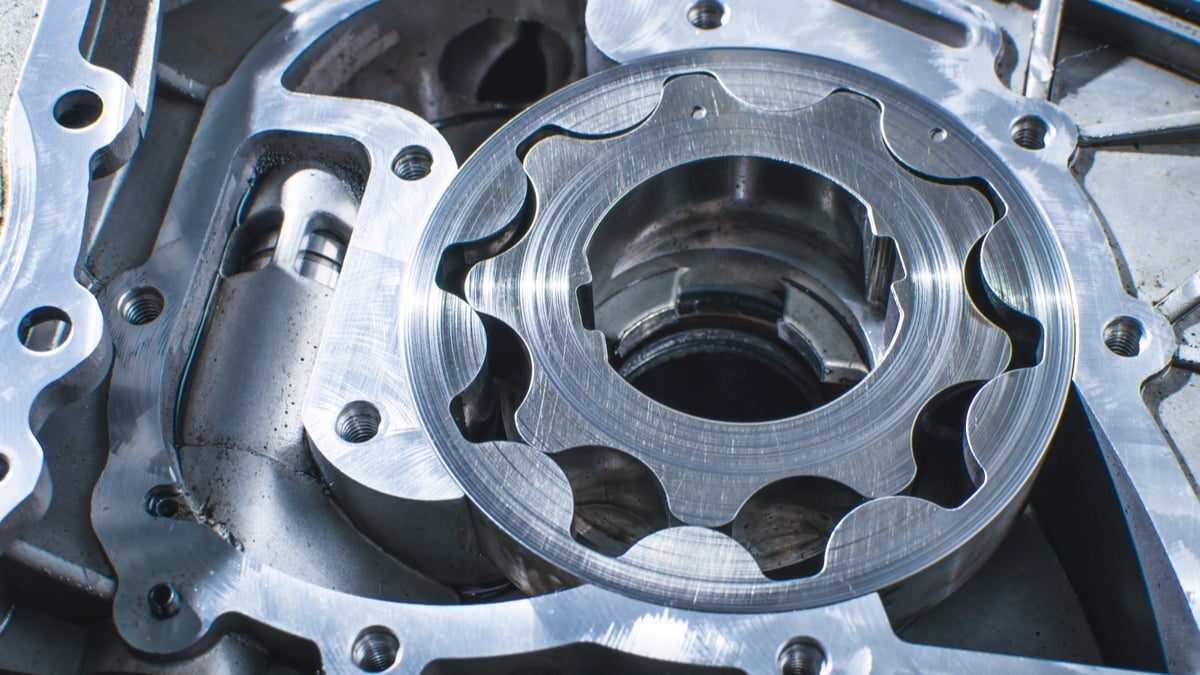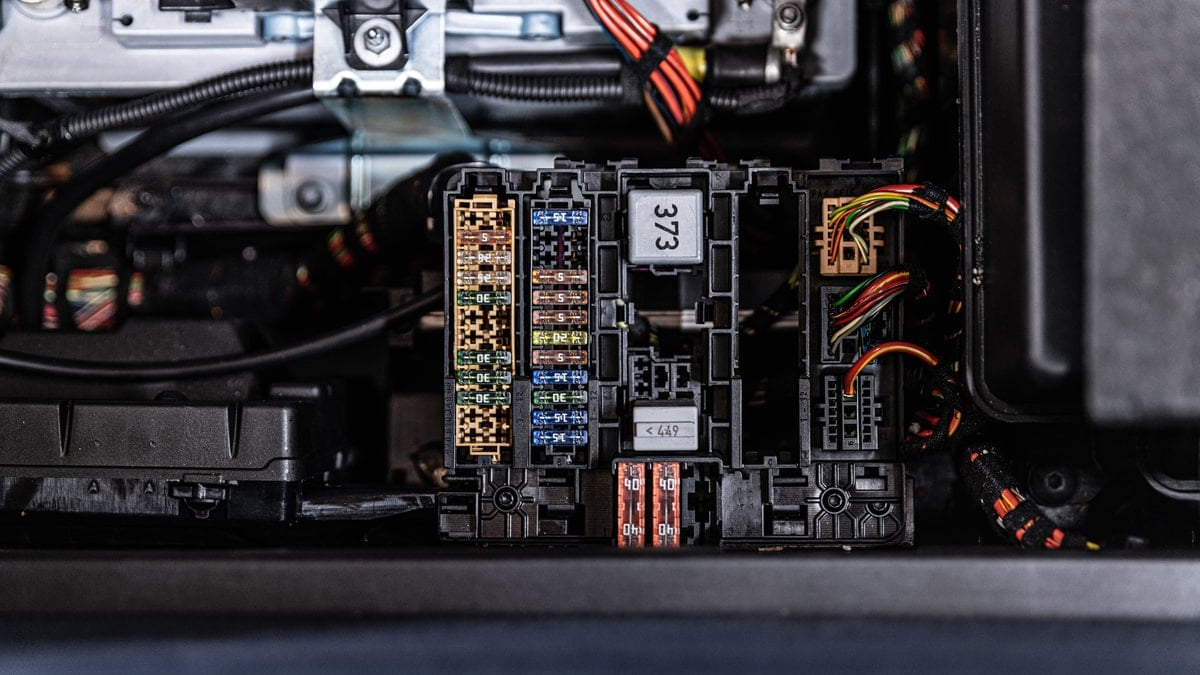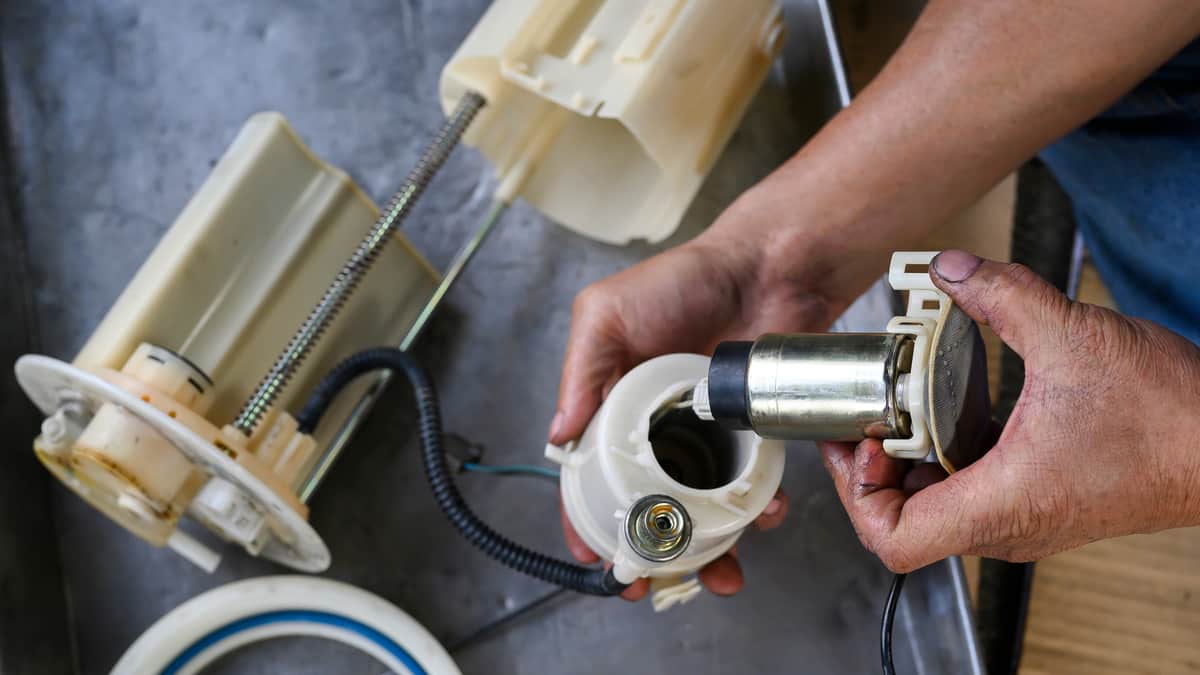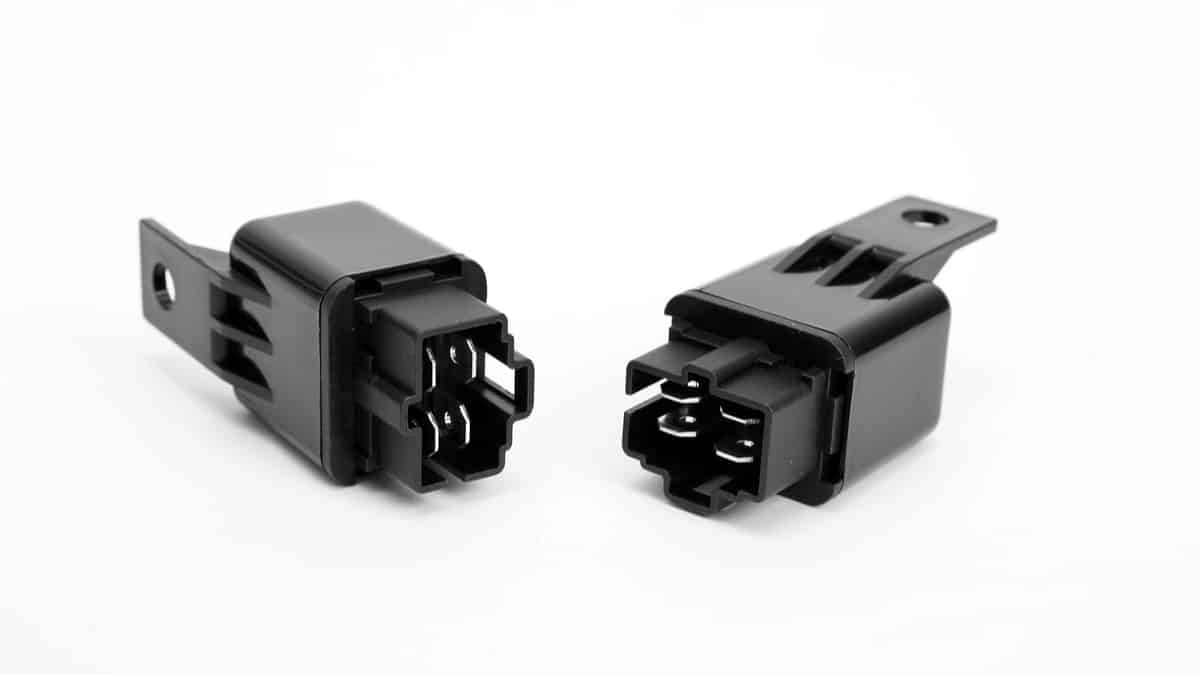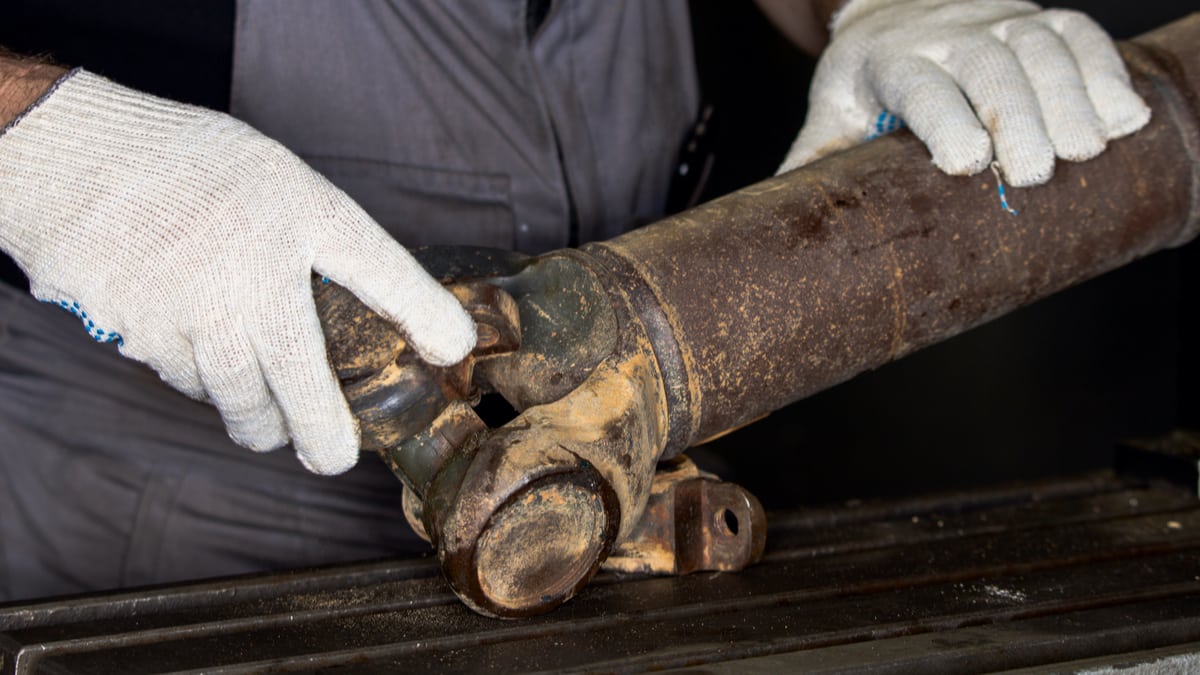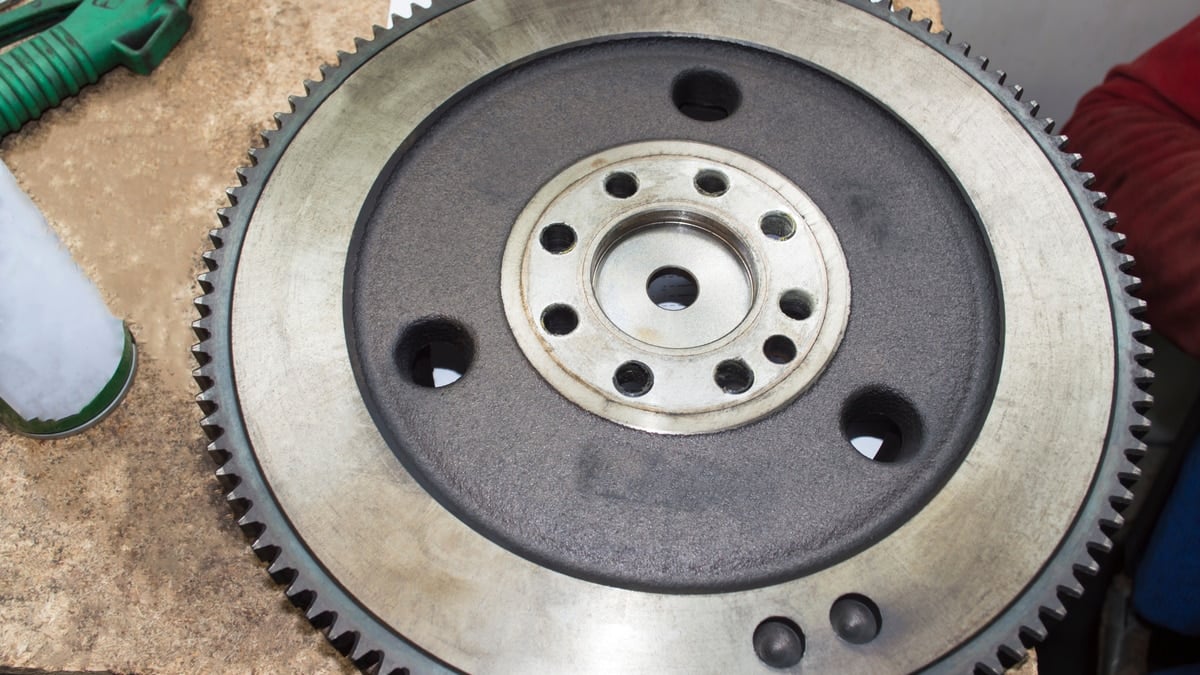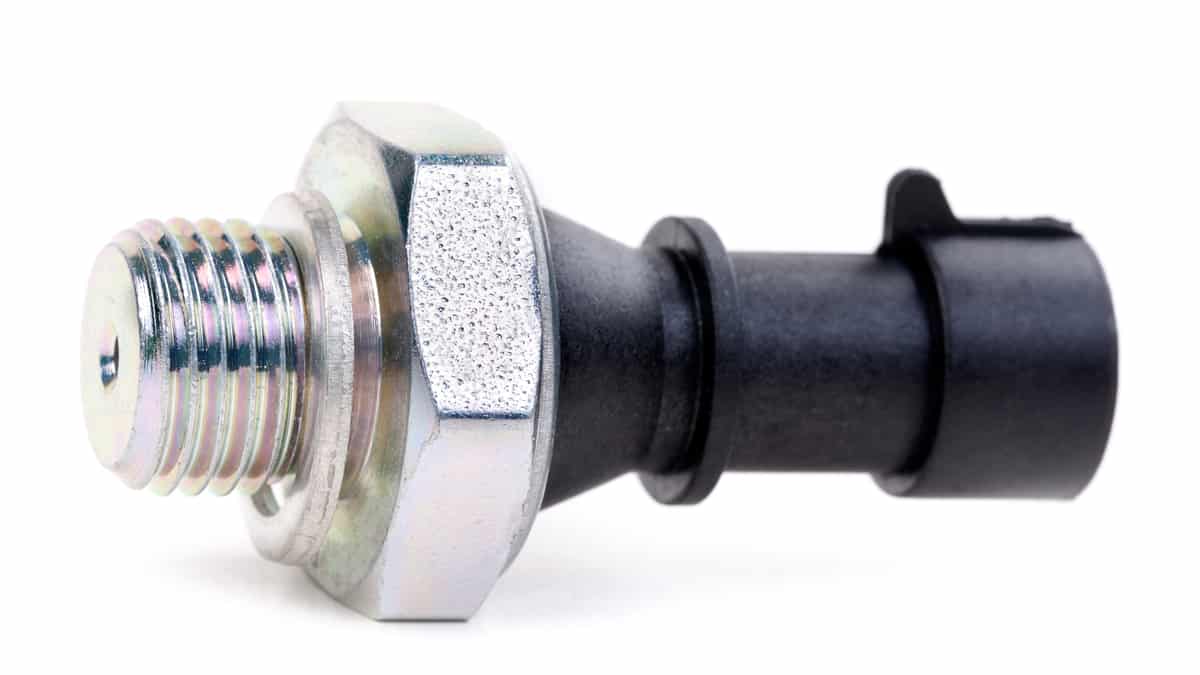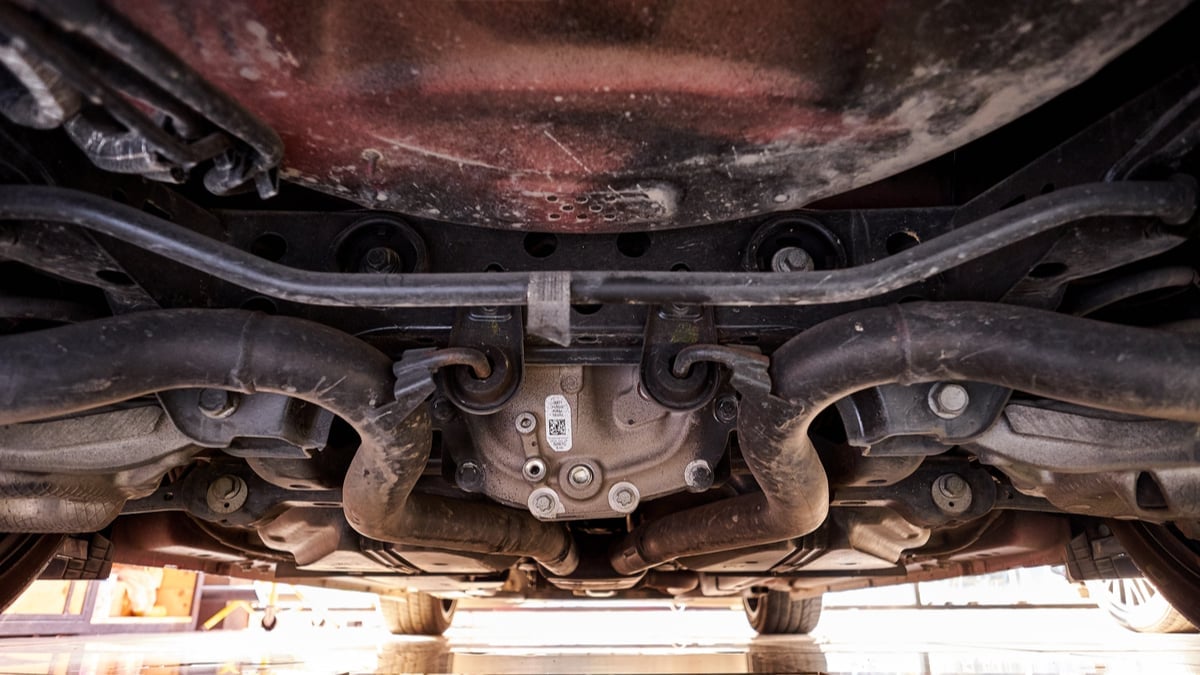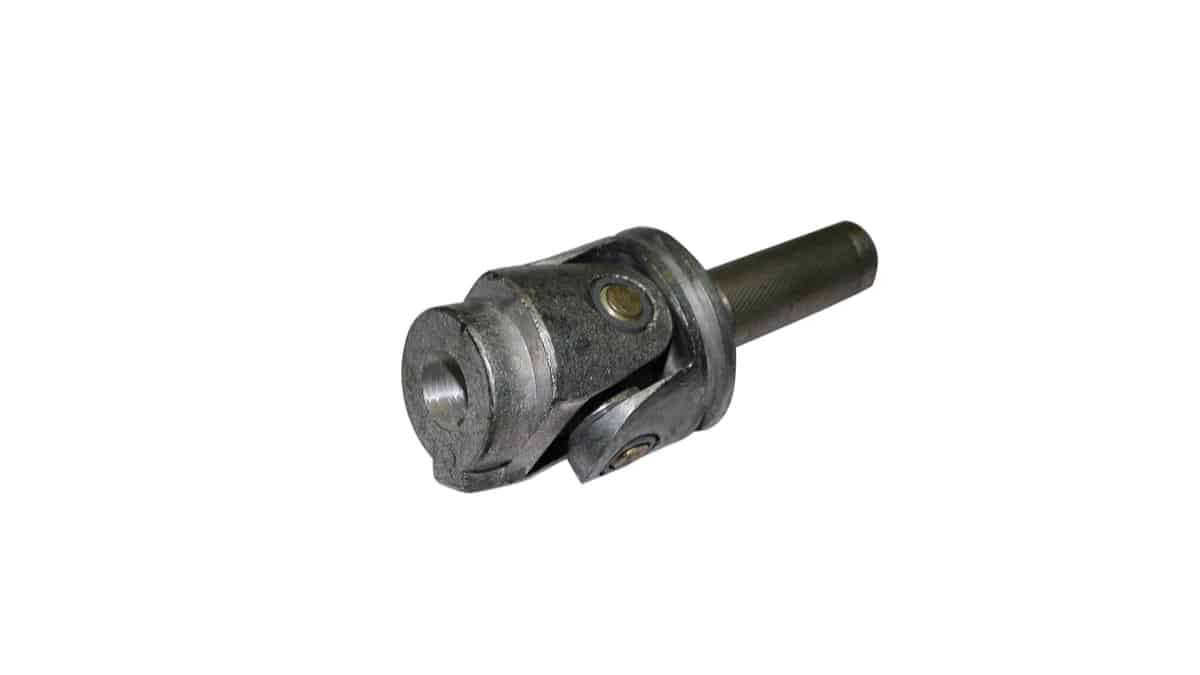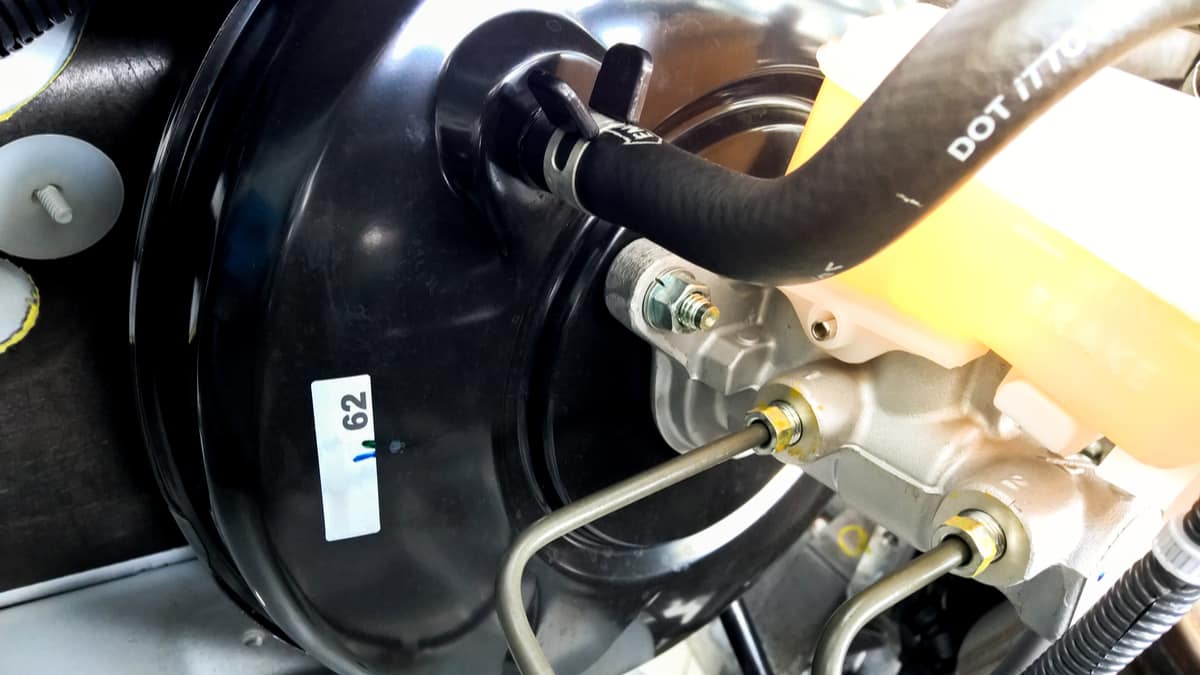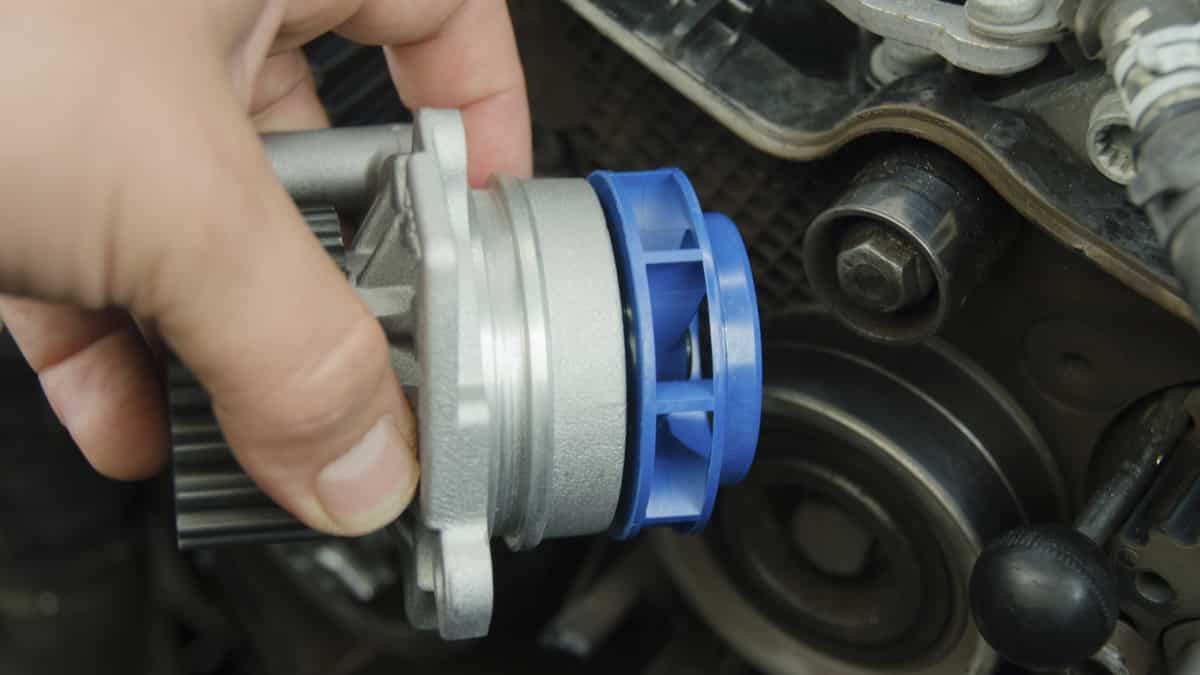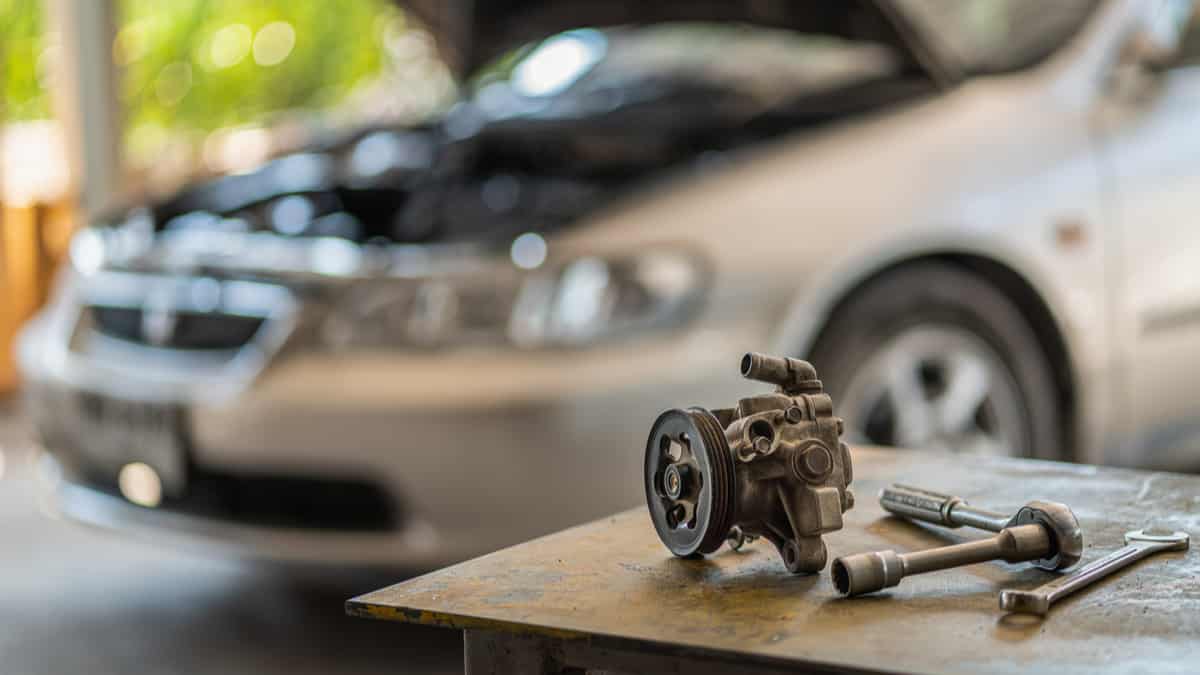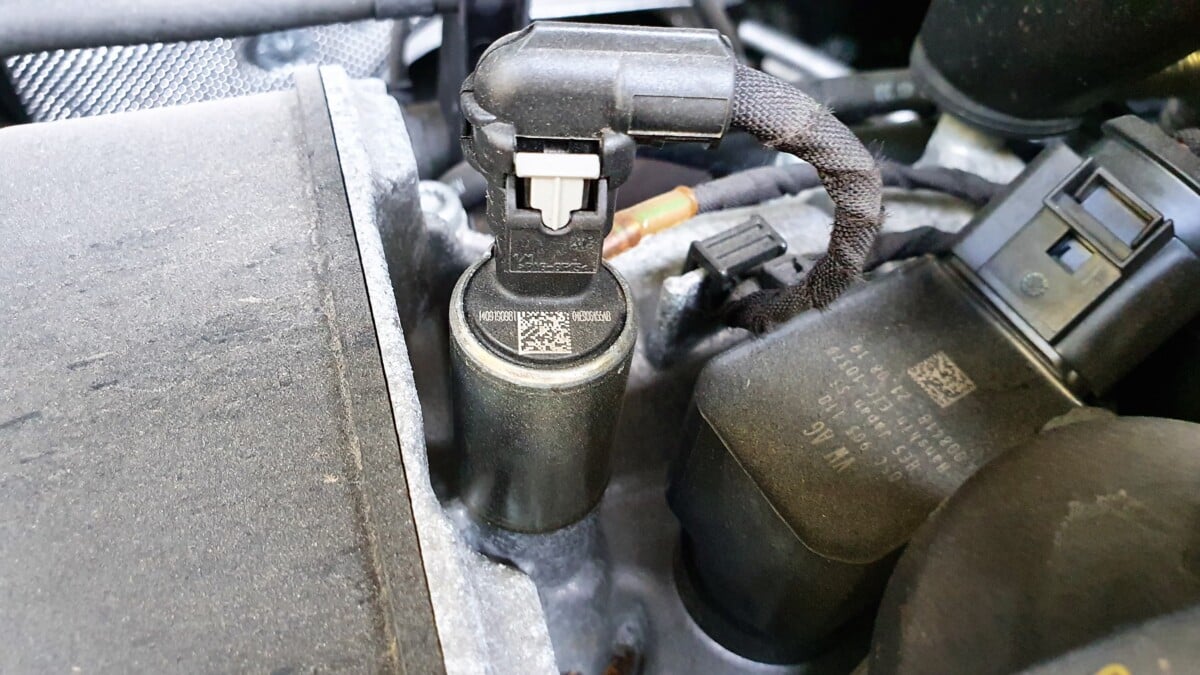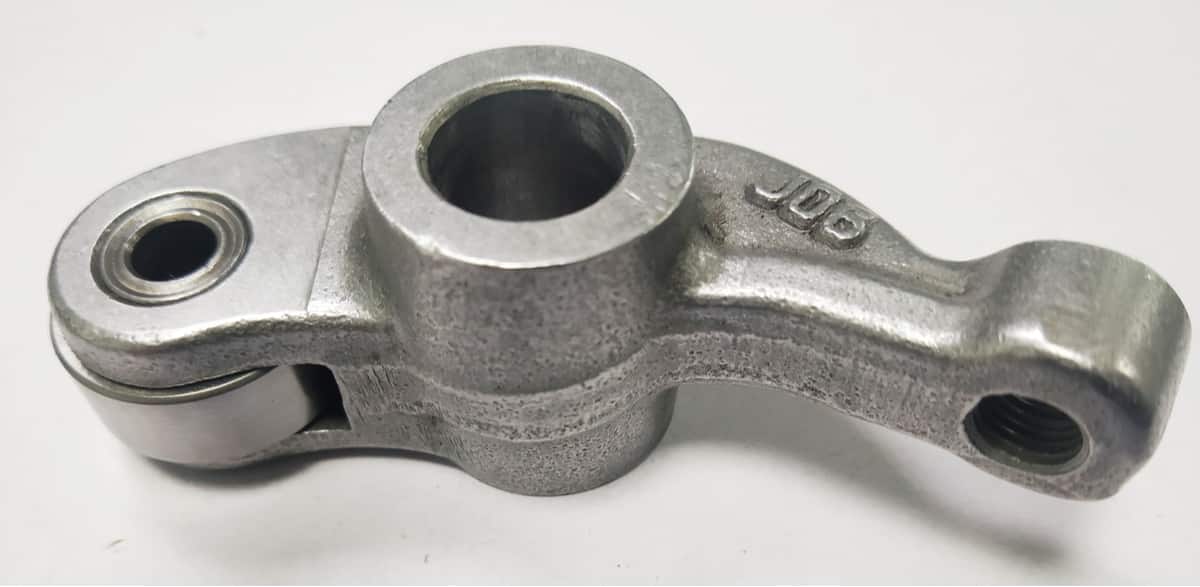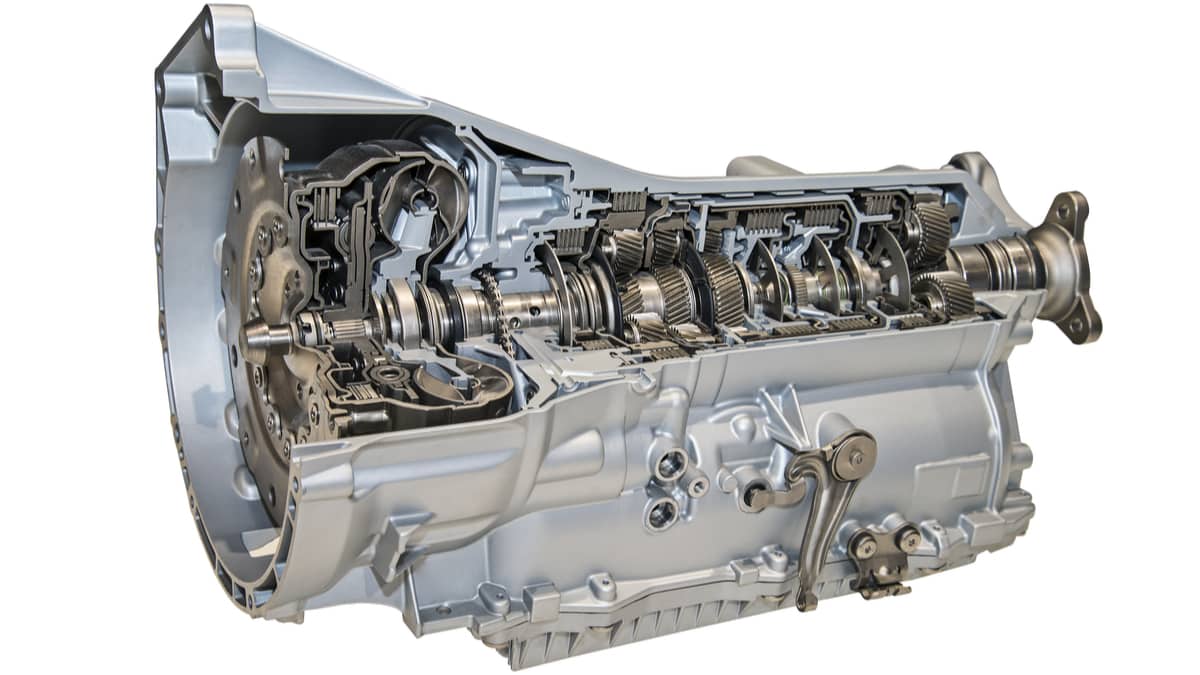Your vehicle’s oil pump is one of the least likely components to cross your mind daily. However, when it stops working as it should, it’s one of the most critical parts to replace as soon as possible.
But how do you know if your oil pump is failing, and how much can you expect to spend to replace it? In this comprehensive guide, I break down everything you need to know about this critical component. Let’s begin with a quick overview of the signs to look for.
Symptoms Of A Bad Oil Pump
The most common symptom of a bad oil pump is a low oil pressure warning light on your dashboard. You may also notice that your engine has become noisier than usual. You can hear this by opening the hood at idle and listening for any metallic noises.
There are not many different symptoms, as you may notice, but the symptoms that do exist can be very strong indicators.
Here is a more detailed list of the signs of a bad or failing oil pump to look for:
1. Low Oil Pressure/Oil Pressure Warning Light
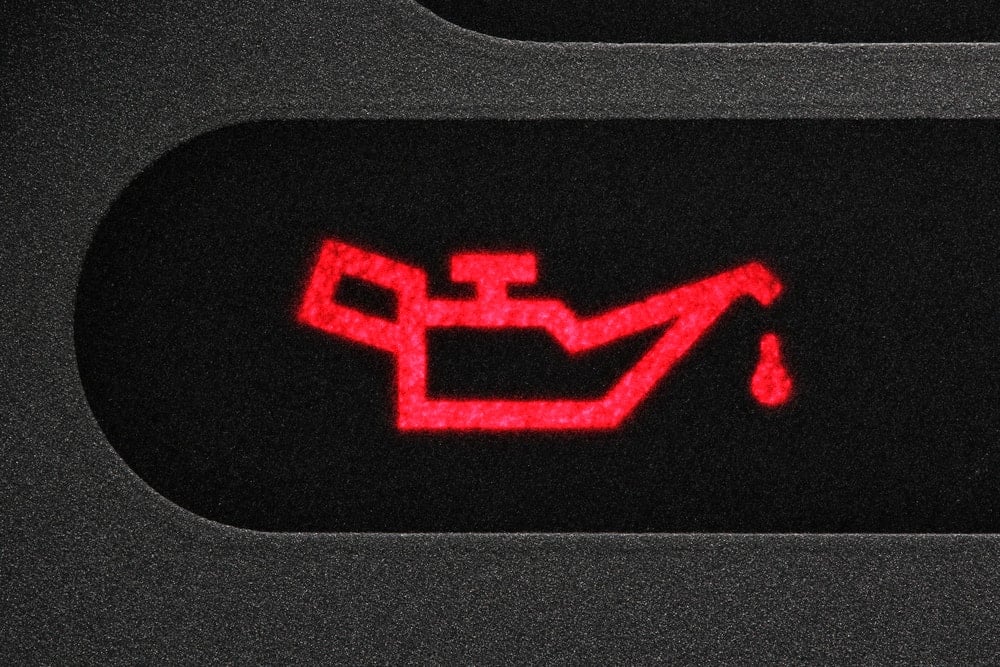
Your oil pump is what pressurizes your oil system, so it makes sense that as it starts to fail, your vehicle’s oil pressure will drop. Keep in mind that it’s unlikely that the entire oil pump will fail at once, so it’s more likely that you’ll have low oil pressure instead of no oil pressure.
If your engine doesn’t have an oil pressure gauge, it should have an oil pressure warning light. As soon as this light turns on, you need to stop driving. Low oil pressure can quickly lead to severe engine damage that can cost you thousands of dollars.
Until you fix the cause of your low oil pressure, you shouldn’t drive your vehicle – even to the mechanic’s shop. Opt for a tow instead.
2. Increased Engine Temperature
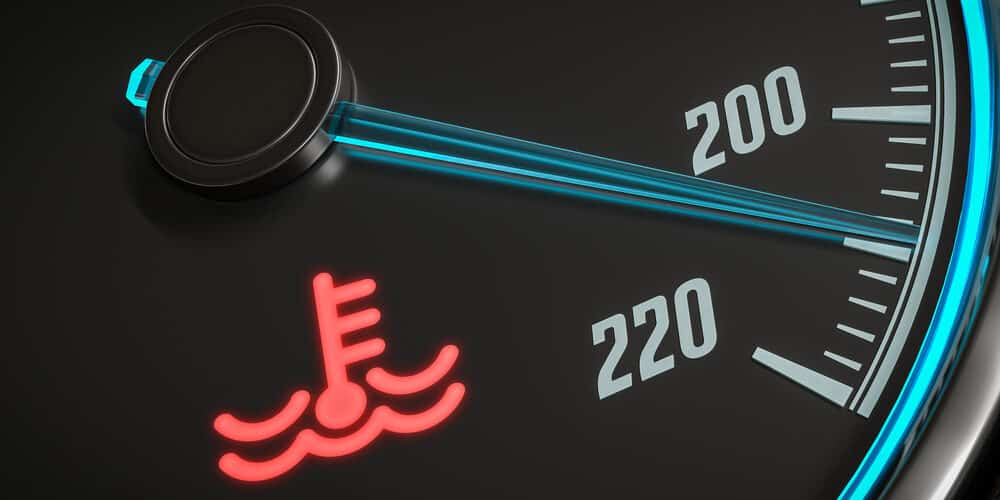
If your vehicle’s oil pump isn’t moving the oil around the engine as it should, one of the first things you’re going to notice is a spike in your engine’s temperature.
While there should be other symptoms to accompany this, like engine noise or an oil pressure warning light, a faulty oil pump will cause your engine to overheat if you keep driving.
3. Engine Noises
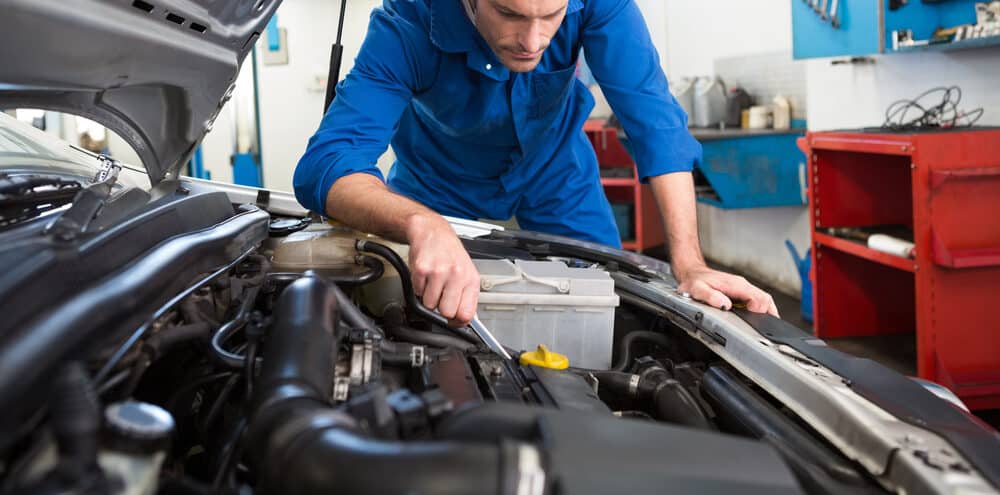
There are multiple places where your engine could be making noises if the oil pump stops working. While one of the most common locations is the oil pump itself, it’s also not uncommon to hear noises coming from the valve train.
The valve train uses oil to keep everything lubricated, and without it, you’ll have metal rubbing on metal without any lubrication. Not only will this quickly cause damage, but it will also create horrendous noises too.
4. The Vehicle Won’t Start
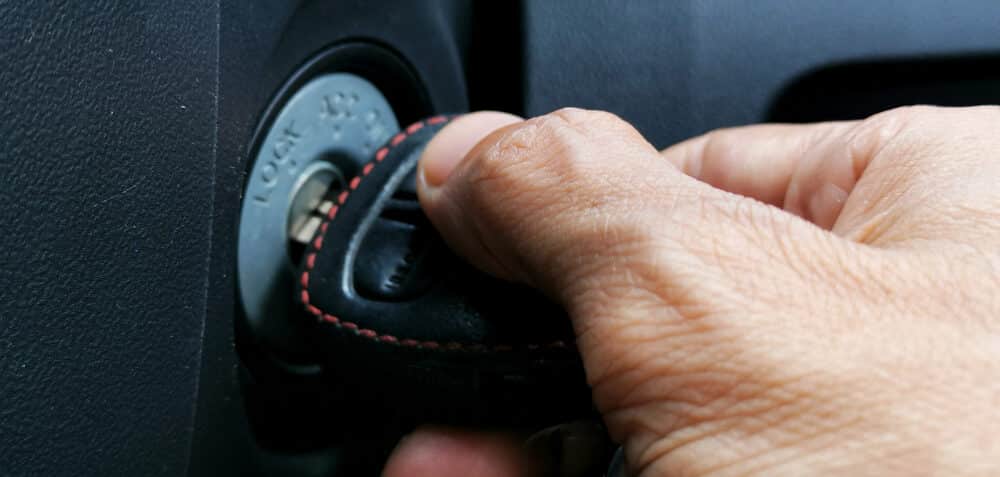
Many newer model vehicles have a low oil pressure switch that’s tied directly to your vehicle’s ignition. If this switch detects that your oil pump isn’t working correctly, it might keep your engine from starting in the first place!
This acts as a way to protect your engine from damage as you struggle to figure out what’s going on. It’s a feature designed to protect you from yourself, because many drivers try to limp their vehicle to the shop if it has a problem, and with low oil pressure, this can create thousands of dollars in repairs.
However, the low oil pressure switch feature that keeps your engine from starting is almost always exclusive to newer vehicles. So, if you’re driving something a little older, you’ll need to take precautions yourself to prevent engine damage.
If you have been driving with low oil pressure long enough that the engine has stopped and it will not crank anymore, you have run into some major problems which may result in an engine replacement.
Oil Pump Function
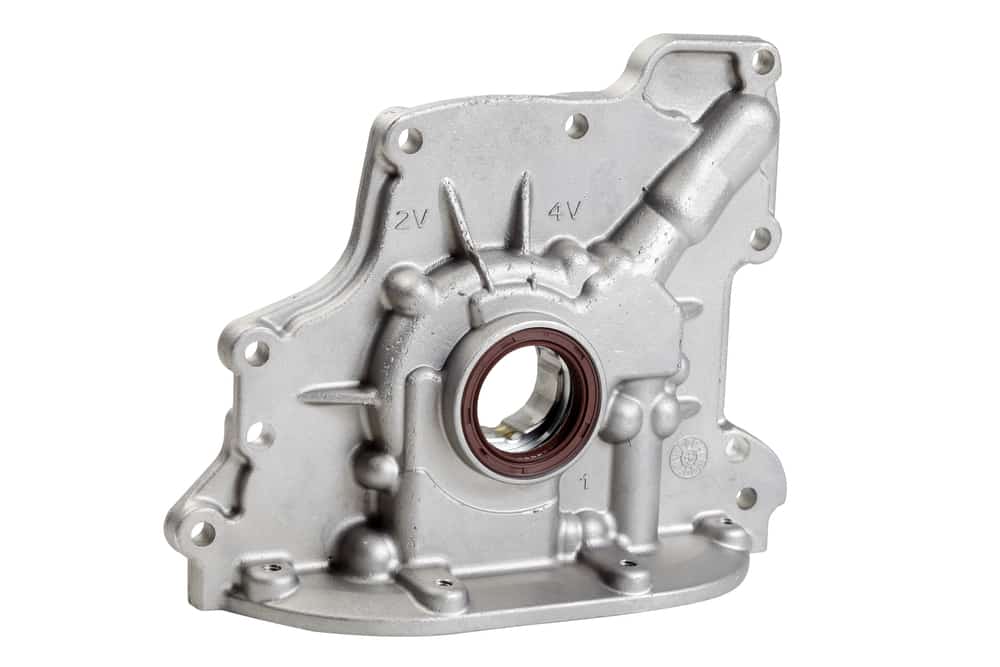
While the motor oil itself has tons of functions, the oil pump’s purpose is a little more straightforward. It takes oil from the oil pan and pushes it throughout your engine. By pushing oil through the engine, it pressurizes everything and lets the oil do its job.
Almost all oil pumps are crankshaft-driven, so as soon as your engine starts up, the oil pump should kick in.
Oil Pump Location
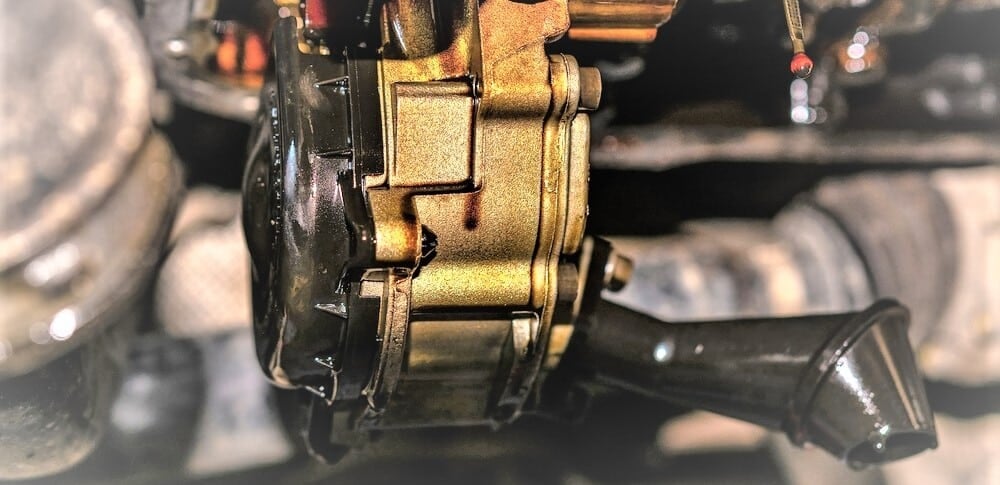
Your vehicle’s oil pump is typically located inside your vehicle’s oil pan. It generally sits towards the top of the pan and uses a pickup tube to take oil from the pan and push it through the engine. In some engines, it is also located around the crankshaft at the front of it.
Because of the location, you’ll need to drop the oil pan to reach it, which adds a little more time and complexity to the job. Even worse, you need to remove the front main cover for many vehicles, which often requires removing and reinstalling a ton more parts.
Oil Pump Replacement Cost
The average oil pump replacement cost is between $300 and $2500, depending on the car model and labor costs. Expect 100$ to 500$ in parts and 200$ to 2000$ in labor costs.
The cost to replace an oil pump varies a bit. For starters, you’ll need the new oil pump, which runs anywhere from $50 to $150. However, you’ll also need a new oil pan gasket and likely a new front main gasket.
Depending on how the manufacturer designed the front main, you might end up replacing all the gaskets associated with a top-end rebuild. The price for all these different gaskets adds up, and you’ll probably end up spending close to $150 to $200 on gaskets alone.
From there, you’ll need a new oil and an oil filter, and if you have to remove the front main seal, you’ll need new coolant as well. Both these fluids will cost you another $100 to $150.
Finally, you’ll need to account for all the labor associated with this. This can vary as well since the number of components you’ll need to remove changes from vehicle to vehicle.
Because of this, it will typically take a mechanic anywhere from four to eight hours to complete the repairs. This leaves a pretty extensive price range from $200 to $800.
Just remember that the more complicated the labor, the more you’ll save by doing it yourself, but it will also be a bigger headache.
What does a bad oil pump sound like?
A bad oil pump will in most cases not cause noise from the oil pump itself, however, a bad oil pump will cause the oil pressure to drop. This drop in oil pressure will cause the engine to be much noisier than usual, and if you hear a metallic sound coming from the engine, you need to turn the engine off and fix it as soon as possible.
Can you drive with a bad oil pump?
No. Driving with a bad oil pump can cause the engine to completely seize up and destroy the engine. A bad oil pump can cause low oil pressure, which is fatal to a car engine in both the short and long term.
How do you check a car oil pump?
The easiest way to check the operation of a car oil pump is to connect a manual oil pressure gauge and check the oil pressure. Getting to the oil pump for a visual inspection is often quite a project, so checking the oil pressure is sufficient in most cases.
Will a bad oil pump make a knocking noise?
Yes. A bad oil pump will cause a drop in oil pressure, which can create engine noise. If you’re hearing a knocking noise due to a bad oil pump, chances are you’re hearing rod knocks, which could mean an expensive repair bill. Therefore, you should never run the engine with a bad oil pump.
Categories: Engine Oil
